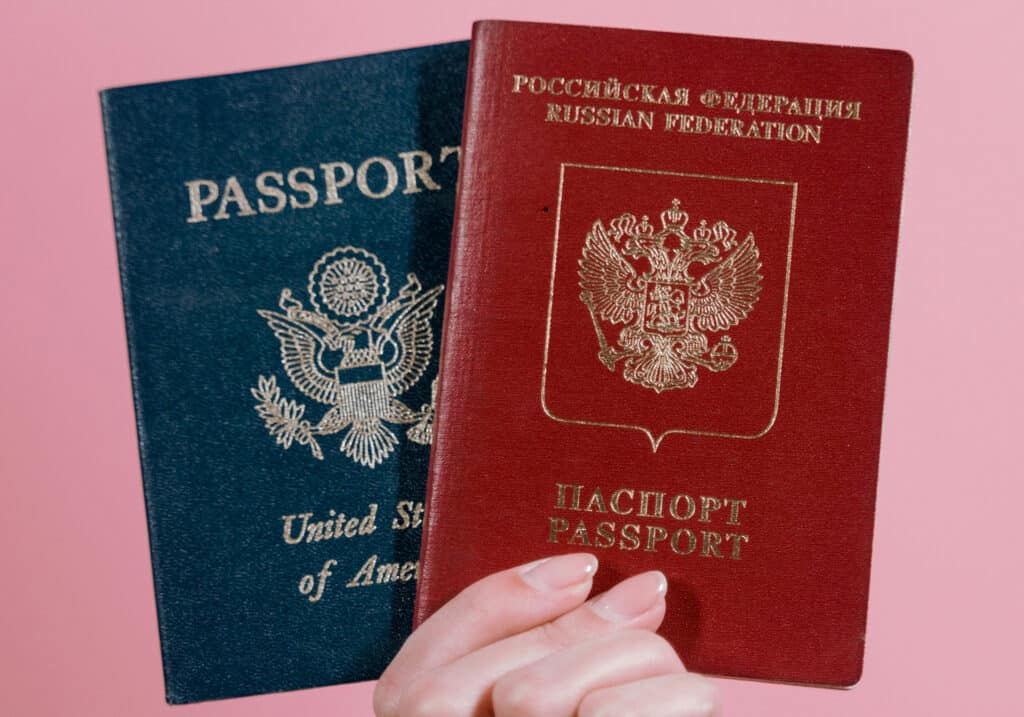21 per cent of our island’s population is born abroad – the third highest number in Europe. Alix Norman speaks to those struggling to find their roots in an alien culture
When people ask you where you’re from, does your response begin: ‘Well, Cyprus but…’?
It’s the Dreaded Question, isn’t it? If you were born or raised abroad, it can be tricky to explain where you’re from.
Should you give the nationality on your passport? Or the country in which your parents were born? Should you embark on a lengthy explanation that involves maps and family trees? Or just fake a phone call/diarrhoea/heart attack and avoid the question altogether?
Or perhaps you can give the only response that really makes sense: ‘It’s complicated.’
If that’s the case, you’re probably a TCK. A Third Culture Kid.
Wait! We’re not saying you’re a child. Being a kid of the third culture could apply to anyone aged nine to 90! All it means is that, as a youngster, you spent a significant period of time in a culture or cultures other than that of your parents.
So, for example, you might have been born to Cypriots in Australia or London. Or you could be a Brit or American or Russian who grew up abroad – in one or many countries, depending on where your family travelled. And, along the way, you’ve combined elements of both your parents’ culture and the culture in which you were raised to form a new culture, unique to you.
This third culture will show up in your language, your gestures, your outlook and personality. It will confound your neighbours and perplex your cousins.
Even your own parents will sometimes have a hard time making sense of what you’re saying or doing. Because, as the product of just one culture, they’re not privy to the wealth of experiences and influences that have shaped your character.
“When I moved back to Britain, I was shocked that Monday was the start of the week,” says Limassol resident Emma Parsons. “I’d grown up in the Middle East, so to me the start of the week was Saturday. It always will be!” she laughs. “I’m 46 now, but it still throws me!”
Like many TCKs, Emma moved abroad at a young age, leaving “the wet green and damp grey of England for the blinding whites and blues of Bahrain.
“So when I went back to Uni in the UK, everything was foreign. My parents thought it would be a great experience – they thought it would be as familiar to me as it was to them. But for me, Britain wasn’t home. It was loud and messy and cold; dirty and confusing. I didn’t understand the people – and they didn’t understand me. I got out as soon as I could!”

Your passport doesn’t always tell you where ‘home’ is
Emma admits that relocating to Cyprus and living among other TCKs was the right move. And, in Writing Out of Limbo: International Childhoods, Global Nomads and Third Culture Kids author Nina Sichel depicts TCKs as children whose “identity is most closely aligned with others raised in the same way, moving internationally.”
According to the recent census, 21 per cent of Cyprus’ population is foreign born – the third highest in Europe. Paphos has the most foreigners, at 38 per cent of the district’s residents; Limassol has 20 per cent, Larnaca 19 per cent, and Nicosia 18 per cent.
Almost 40 per cent of these expats hail from Greece, where the culture is fairly similar. But 16 per cent are Brits, eight per cent are Russians, and eight per cent are Romanians. Significant numbers of Ukrainians, Americans and South Africans also live on the island.
Given that the majority moved here between 1990 and 2010, it’s safe to say that more than a few of these will have produced a new, local TCK generation. Who, like Obama (born in Honolulu, raised in Indonesia) and the late Kobe Bryant (who lived in Italy until age 14) find the notion of ‘home’ to be a complex subject.
26-year-old Larnaca resident Lana Richardson (a Brit who moved to Cyprus in her teens) suggests the sound of cicadas is as likely to bring on a bout of homesickness as the smell of freshly-mown grass. And 50-year-old Andrew Andronicou (born in Cyprus but raised in London) says anything from the chimes of Big Ben to the smell of souvlaki make him think of home.
“Even as a child, I was never sure where I was from,” he reveals. “My family was Cypriot, but my passport said British. So I grew up in two worlds – thinking in English but speaking in Greek at home; eating koupepia and drinking Vimto; trying to play Blur on my bouzouki!”
Still, Andrew admits being a TCK is an advantage. “It taught me to look at the world in a different way, to see things differently. I speak two languages fluently, and I reckon I’m pretty adaptable.”
Recent research proves that TCKs are highly adaptive, open-minded problem-solvers who generally exhibit better interpersonal skills than their peers. They speak more languages; stay in education longer; and have a lower divorce rate.
On the other hand, few have close relationships with their extended family; many feel disconnected from their roots; and those whose families move around a lot can carry the trauma of constant upheaval into later life. “For TCKs, processing those losses may take time, as will the lack of connection to their roots, and an inescapable separation anxiety,” says TCK expert Karen Gilbert.
With globalisation on the rise, the number of people who are currently living outside the old nation-state categories is increasing rapidly. In 1990, 150 million people around the world lived in a country other than that of their birth. By 2020, that number had nearly doubled.
In Cyprus, the gap is much, much wider.
In 1992, just 5 per cent of the island’s population was foreign born. Today, that number has quadrupled.
That’s a lot of TCKs in the making; a lot of people who are never sure how to answer the question ‘Where are you from?’…







Click here to change your cookie preferences